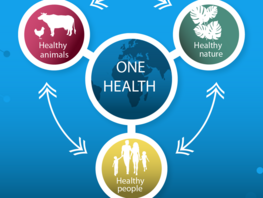The Cabinet of Ministers of Kyrgyzstan is proposing Umut national program for the implementation of prenatal screening for 2025-2030. A draft resolution has been submitted for public discussion.
It is noted that the document was developed to improve the health of mothers and children, early detection and prevention of hereditary and chromosomal diseases, and improve the availability and quality of medical care at all stages of pregnancy, taking into account national and international recommendations.
Achieving this goal requires implementing a set of interconnected objectives:
- Preventing the birth of a sick child with genetic disorders and other conditions by introducing prenatal screening into routine clinical practice to reduce childhood morbidity, disability, and mortality in the Kyrgyz Republic;
- Preventing severe forms of congenital malformations;
- Creating conditions for the birth of a healthy generation through timely diagnosis and monitoring of pregnant women at risk of fetal pathologies.
The introduction of prenatal screening in the country is a necessity for modern life. Prenatal screening programs have great potential to improve the quality of life of the population and achieve progress towards universal healthcare coverage.
Effective prenatal screening can contribute to disease prevention, reduce disability rates not only among children but also among the entire population over the long term, and lower perinatal and infant mortality rates. Congenital malformations and hereditary diseases are among the main causes of perinatal pathology, infant mortality, and various forms of childhood disability, the initiators note.
A key element of the program is the development of a national prenatal screening system aimed at the early detection of severe congenital malformations in the fetus.
«In the absence of a unified screening mechanism, pregnant women undergo screenings irregularly, outside the established schedule, and without regard to clinically sound protocols. This leads to late diagnosis, reduced chances for timely medical intervention, and an increase in the incidence of newborn disabilities.
The proposed system is based on biochemical and ultrasound screening in the first and second trimesters of pregnancy, with subsequent referral of high-risk women for in-depth examination and genetic counseling. Diagnosis verification, if necessary, will be performed using invasive diagnostic methods. Screening must be performed within strictly set timeframes: 11-13 weeks for the first trimester and 18-21 weeks for the second. Failure to comply with these timeframes significantly reduces diagnostic accuracy and minimizes the potential for clinical intervention,» the background statement says.
The program envisions the creation of one specialized screening center in each region, based at large healthcare organizations with sufficient human and technical capacity. These centers will be responsible for screening all pregnant women in the region. A mandatory requirement is that these facilities be equipped with modern, expert-grade ultrasound machines and automated biochemical analyzers capable of providing the required testing volume while maintaining quality standards.






